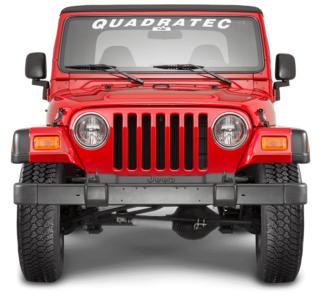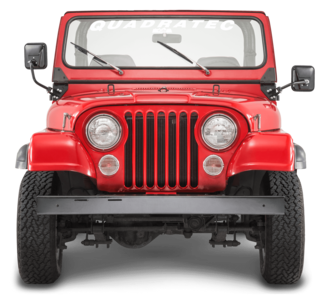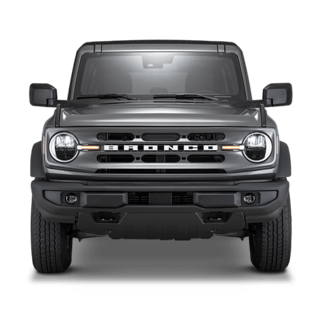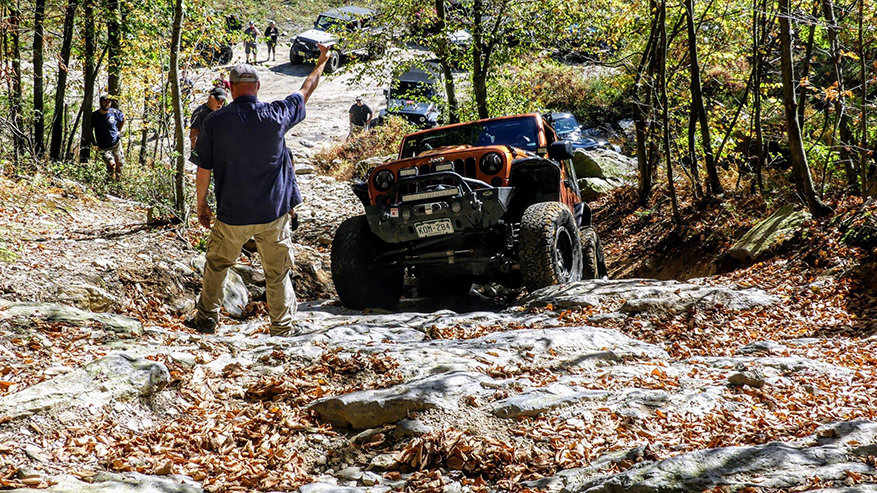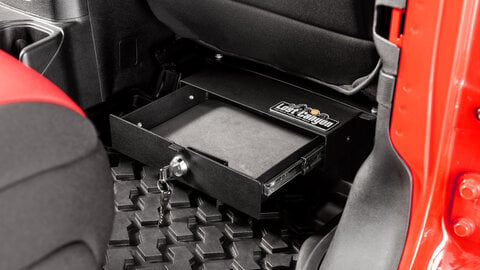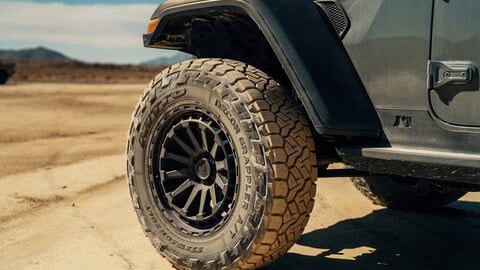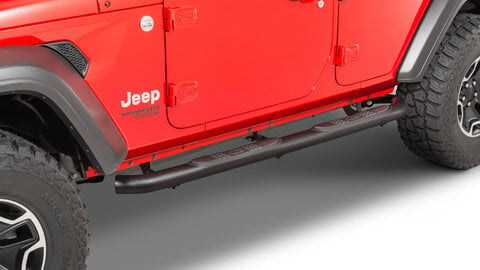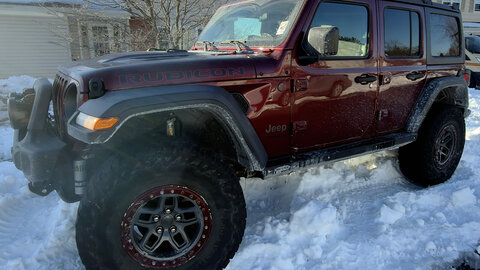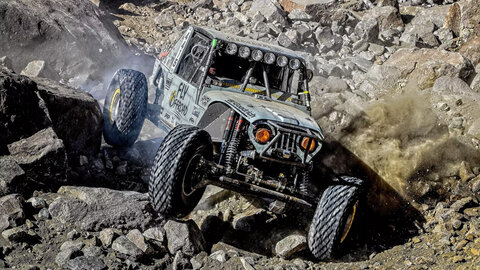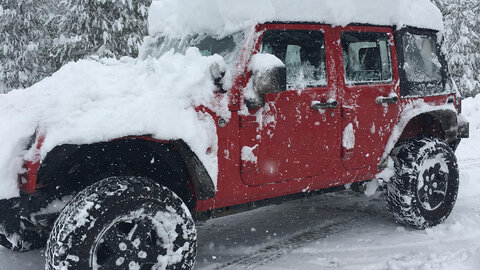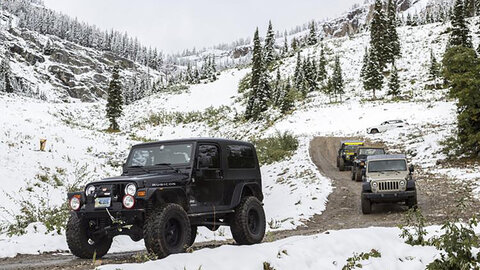by Kyle Buchter
Quadratec Channel Correspondent
All this time spent home may be serving up plenty of inspiration to those of you who have never taken their Jeep off-road. Perhaps it is all those videos of Jeeps conquering huge rocky obstacles. Or crawling up near vertical climbs with an incredible patience. There is certainly no shortage of people doing some wild off-road stuff in their Jeep.
Well, while those are fun to watch and imagine yourself doing, in reality they can really be dangerous for anyone who does not have a solid understanding of off-road skills, or experience.
For those of you looking to take your first steps into the off-road world, we really recommend starting with the basics.
We call this Jeep Off Road 101.
What is a 101 off-road class? Simple. It is beginner level training geared towards teaching you the necessary basics of getting into the hobby, all so you can gain a lifetime of enjoyment.
Not all 101s are the same and they can vary greatly. Things like location and trainer expertise can also alter which topics and techniques are taught. Depending on which version of a 101 class you choose, the curriculum can be a mix of classroom learning and driving, all the way to winching and recovery techniques.
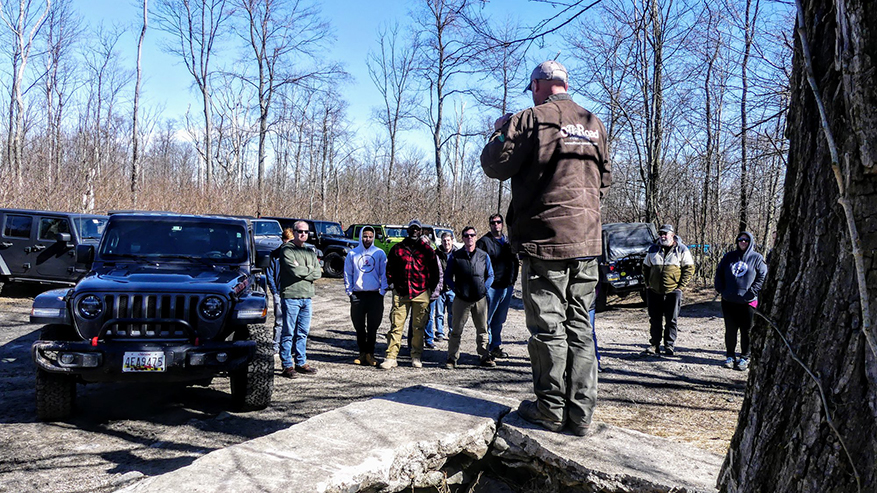
Whether a 101 is focused all on driving, or winching, or both, these classes are a great resource and can really help a beginner gain confidence, while also being a great refresher for a more advanced driver who may not have gone out in awhile.
So if you are considering taking a beginning 101 class, spend some time to research who is teaching the class and what they plan on teaching.
Off-roading can sometimes be a ‘look at me’ hobby, and there are certainly some trainers out there who want to show you their deep knowledge of the sport. Keep in mind, just because someone believes they know something, doesn’t mean it is always right.
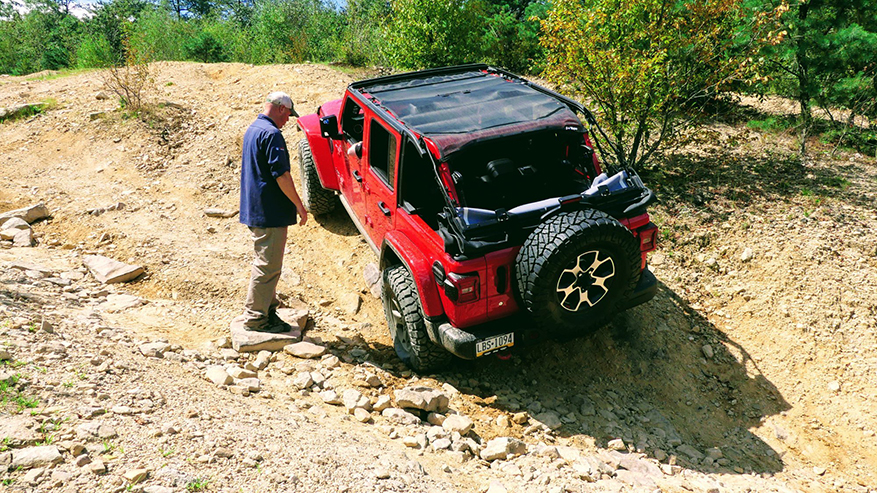
Find a trainer who is there for you. Someone who is interested in your growth and improvement as a driver, and a trainer who cares about what you can do instead of what they can do. It isn’t about them; it is about your development and enjoyment.
Additionally, figure out where you are as a driver and how your vehicle is set up. Be honest with yourself and don’t let any ego come into play. If you are just starting out with a stock Jeep, then don’t let an instructor talk you into driving on something outside your comfort zone. The best ones will understand your level, and work on skills that match your experience.
Going back to ego, it is simple—try not to have one. Just because you’ve been driving for years, or you may have taken the Jeep off-road a few times, doesn’t mean that you can’t learn something. Be humble and take advantage of all your opportunities to make yourself a better off-road driver. We should never stop learning and improving our fundamentals.
This goes for vehicle modifications as well. Stay humble. Just because you may have a vehicle that is already modified, doesn’t mean you should skip a 101 class if you have no experience.
We have seen even seasoned off-road drivers take away new skills from the basic 101 classes. It is a different world of off-roading now and adapting to it takes understanding.
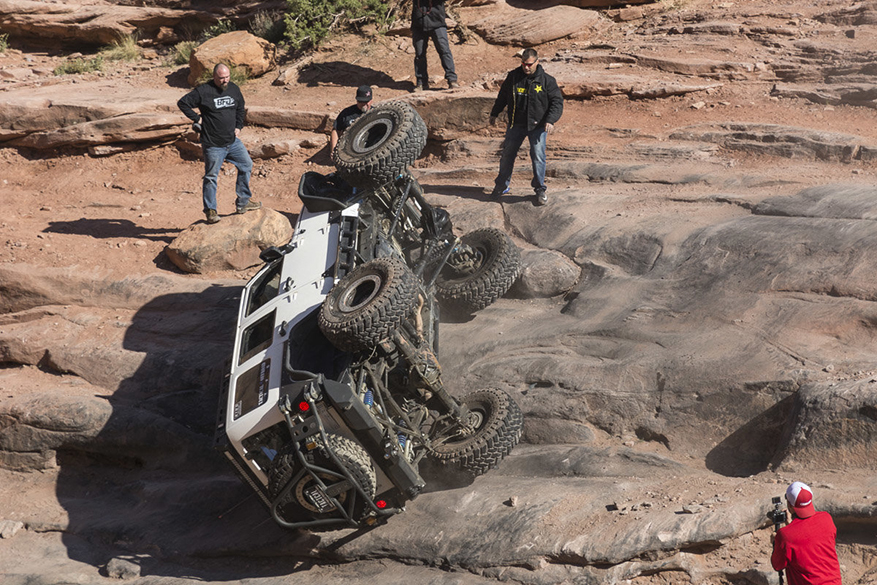
You may remember, or even have watched, videos from years ago trying to float the notion of off-roading the vehicle as hard as possible—often to the point of vehicle failure. While that may be fine for those who specifically build their Jeeps for that purpose, don’t let them cloud your judgment. That older ‘go hard or go home’ mentality just doesn’t really fit with today’s ‘I need to take the kids to school, drive to work with this thing on Monday and, oh yeah, I just mailed my $525.00 monthly payment’ lifestyle.
So, what are some of the things you can expect to learn in a 101 environment?
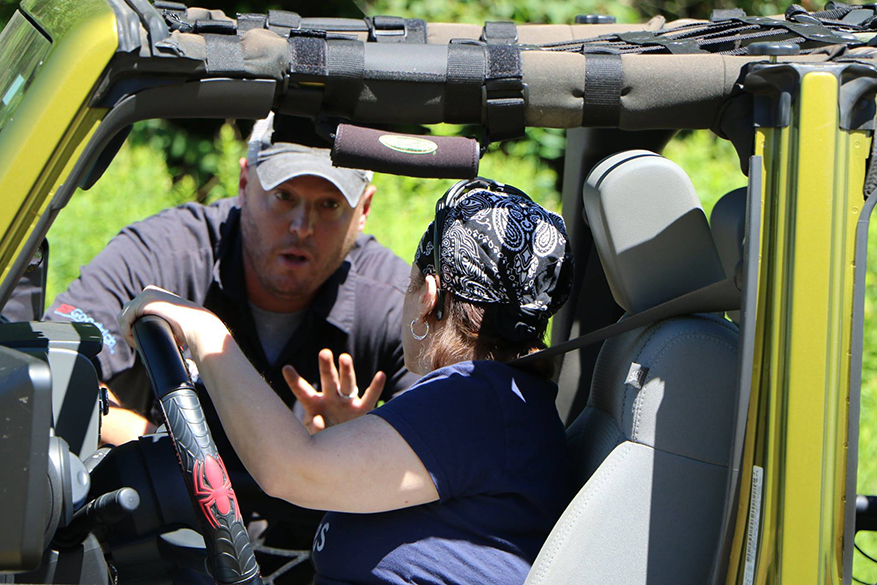
Understanding the vehicle
This covers fundamentals like how to shift into 4wd, and not just 4-low but why and when 4-hi and 4-low should be used. Do you know all of the off road features of your vehicle? What do all the buttons accomplish? What are hill decent, traction control, lockers, sway bars, etc? Depending on your vehicle there could be quite a few of these features—or perhaps none if you drive an older Jeep.
For example, did you know that Jeeps after 2006 only have the traction control feature temporarily disabled when you put the vehicle into 4 low? Yes, it can turn back on when you drive if you drive it off road accordingly.
If your vehicle does not have traction control, or lockers, don’t worry. There are tips and techniques for every vehicle and taking a 101 class is the best place to start.
Other topics a class can cover include understanding the size of the vehicle and how it relates to off-road driving. This is important because your vehicle's size affects off-road driving way more than on road, and is something you need to know.
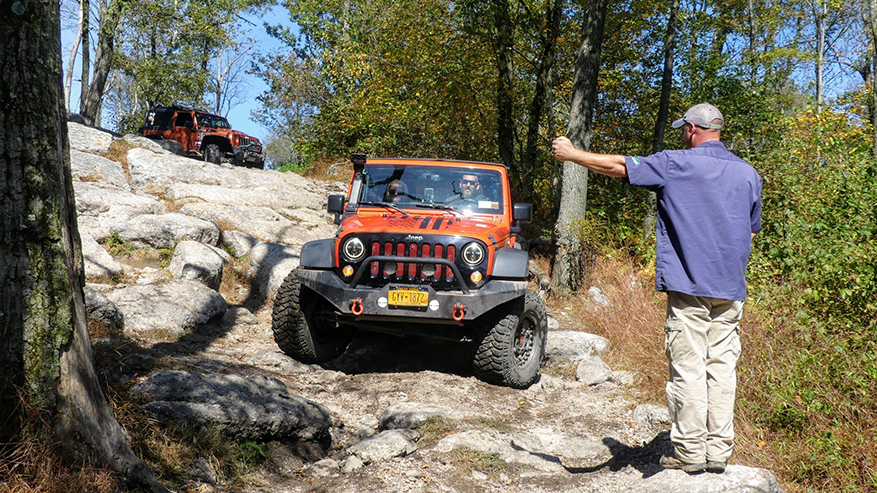
Navigating Terrain
Hills, mud, sand, off camber, rocks, trail obstacles, water and many more things await you out there when you leave the trailhead.
So learning the best way to negotiate through all these various terrain elements is important, all while focusing on vehicle preservation.
Depending on the location, there are ways to look at every type of obstacle and terrain to discover the best way to overcome. Know the differences, be aware of you and your vehicles limits, and respect these limits. You and the vehicle should always complement each other.
Also, learning when you need the help of others—such as spotters—is critical. If you are approaching things like a long rock field, or a steep hill climb with washed out ruts, and you are uncomfortable, then don’t try to over drive and bully your way through without help. That is never the best way and can often lead to vehicle damage. Spending a few minutes to have a spotter is much better than having to open a checkbook and spend thousands of dollars on a repair.
This is another reason we recommend taking a 101 class that lets you learning by doing from the drivers seat, instead of from a classroom. You’ll see issues, learn first-hand how to deal with them and be able to work with others to overcome. It is a great asset.
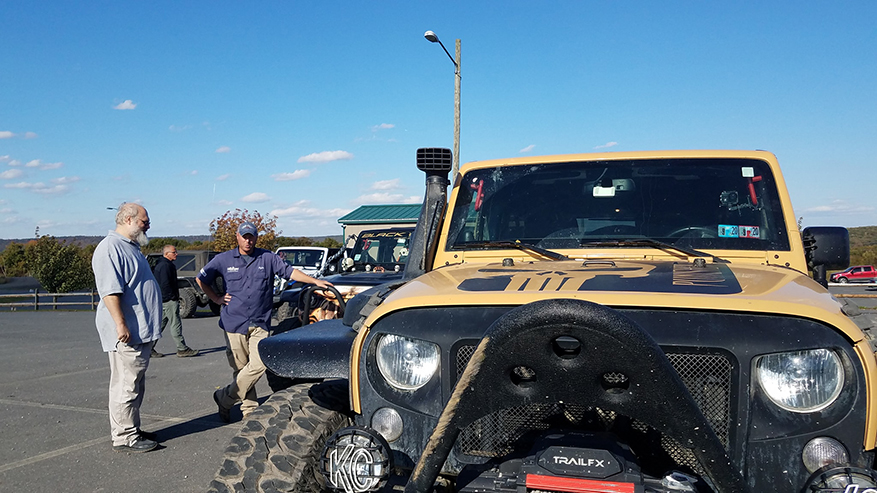
Vehicle Preparation
How should I prepare my vehicle for time on the trail? That is always one of the biggest questions asked by those just getting into the off-roading field.
This also includes stuff like: Do I really need that lift kit? Should I air down? What are sway bar disconnects? Do I have to do a vehicle 360-degree walkaround before heading out on the trail?
And those answers can be found from a 101 class.
A good 101 instructor will help you identify your goals, and give you advice on how to reach them. This may include telling you that you’ll need a suspension lift kit because you want to attack more difficult trails.
They will also cover how to air down your tires before off-roading, and proper pressure for your tire and wheel size, as well as what sway bar disconnects are and why they are important to achieve better tire articulation.
Truth is, there are many things to understand before proceeding headstrong into the off-road world. And an off-road coach who cares about your development will let you know how best to spend your money so your Jeep is capable of handling what you want to most accomplish.
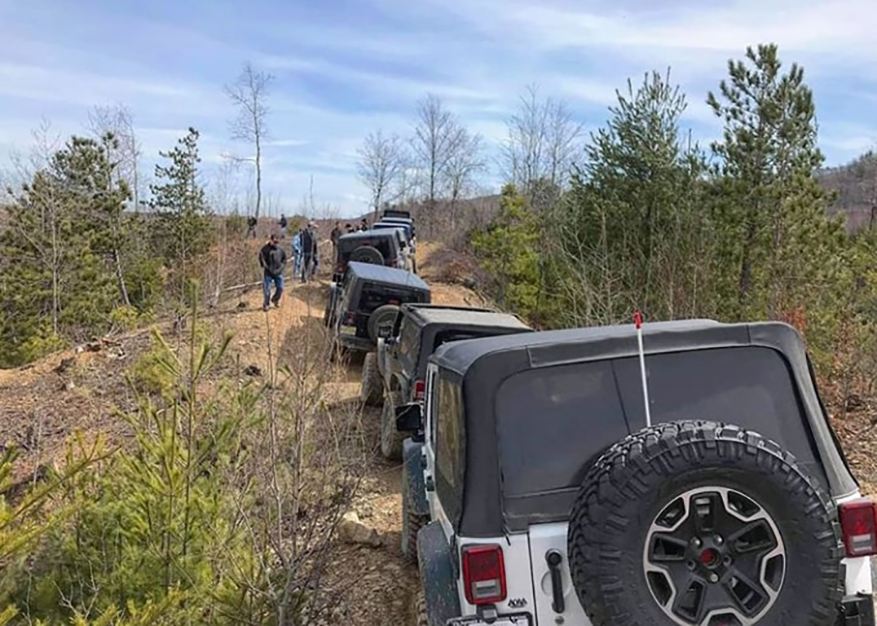
Tread Lightly
You may think off-roading is simply going out on a trail and using your Jeep to overcome anything in your way.
While that is part of the off-road experience, another important element is always respecting the land along with any owners of that land. This goes from ‘Are you legal to be there’ to leaving it better than you found it.
That’s why a good 101-level class will do more than just teach you about the vehicle, or how to drive it off-road. It will also teach you about respecting property and making sure the trails you ride are legal and open. All so you know just how important it is to ‘Tread Lightly.’
This involves understanding how to stay on the trail and preserve for the future. And why stuff like passing other vehicles in front of you unnecessarily can widen the trail to the detriment of nature, or going off through undisturbed brush and undergrowth is dangerous and damaging.
All that just gives off-roaders a bad name. It can also lead to trail closures because of damage.
Not all off-road drivers are created equal and there are a lot of people out there ruining it for everyone else, and the sad thing is sometimes they just don’t even realize. Just because people have been going to a local trail for years, doesn’t mean it is legal. The same goes for ‘I have never been told to get off the land so it isn’t trespassing’.
So part of every good 101 training class should be understanding and preserving the land.
In summary, we could go on for days about what should, or should not, be included in an introductory off-road class. But, really, the best ones should all come down to helping you understand your needs, and developing your overall knowledge as a driver.
Sure, there is gear you’ll need to get depending on the areas you go, or the type of trip you are taking, but first things first—the basics. The 101.
Driving is an assumed skill by many and you’ll often hear "I’ve been driving since I was 16." Or “I drive a truck for work”, “I used to drive my ATV in my parent’s backyard.”
Many think they are excellent off-road drivers right out of the box. Don’t be one of those when you get out there. Humble yourself and think of the bigger picture.
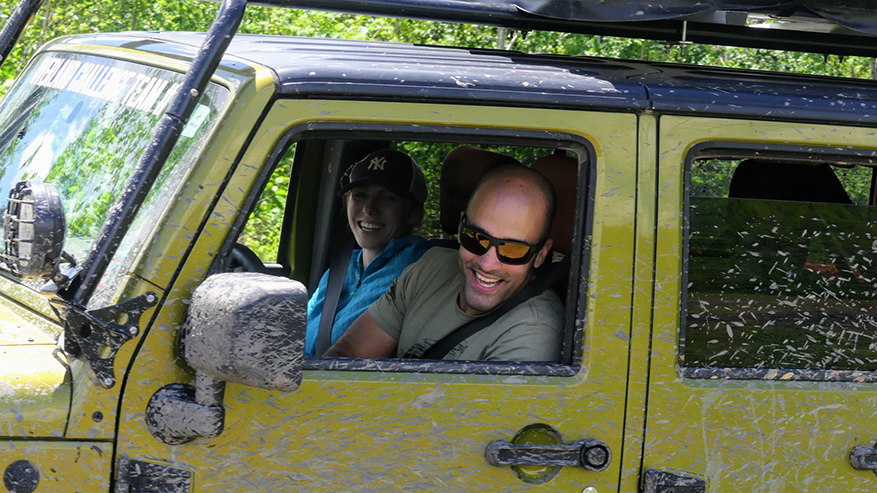
Get out, have fun, come back in one piece. And all while being able to make that next payment, or remembering the good time you had on the trails.
The lift kits are cool, winches make a statement and lights are just illuminating. But learning new driving skills is really the best modification you can make when you are starting out.
We have seen plenty of good drivers in a stock vehicle outperform bad drivers in an overly modified vehicle. How embarrassing is that? The main difference between these two drivers is the overall attitude and skill at which they approach the specific situation. And that is exactly what a good 101 course will teach.
Here at Off Road Consulting, that’s what we try to accomplish in all of our 101 courses. We focus on you as the driver and improving your skills.
We know first-hand that becoming a better driver will take you further in this hobby while also helping you maintain a safe, reliable vehicle.
We want to see you enjoy all of your off road experiences, and not leave with damage that could have easily been avoided.




